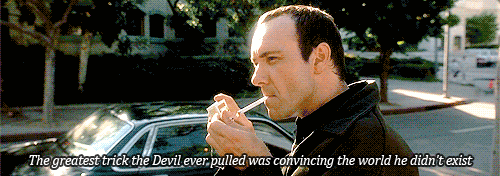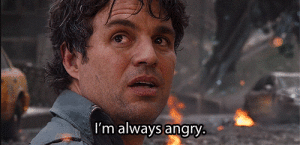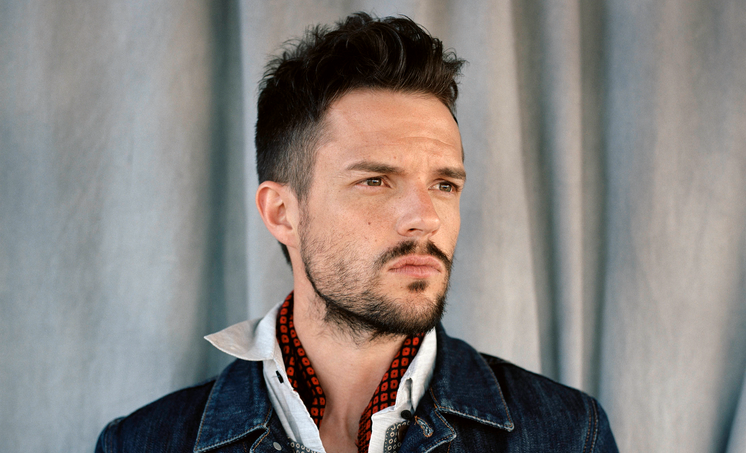 A mom’s photo of her post birth body has gone viral thanks to the raw understanding among women that (most) women still look pregnant weeks and months after giving birth. It reminds me of Kate Middleton’s post birth photos that showed she, too, had a bump. One week after having my first child, I was at Target, alone (my daughter was still in the hospital) and I got the inevitable “When are you due?” question. I looked the same as I did 6 months pregnant. When I told the lady I was postpartum she looked at me horrified and sprinted away, not allowing me the chance to say “I know I still look pregnant, and it’s OK.” Truth is, most people don’t look like movie stars postpartum, or any other time.
A mom’s photo of her post birth body has gone viral thanks to the raw understanding among women that (most) women still look pregnant weeks and months after giving birth. It reminds me of Kate Middleton’s post birth photos that showed she, too, had a bump. One week after having my first child, I was at Target, alone (my daughter was still in the hospital) and I got the inevitable “When are you due?” question. I looked the same as I did 6 months pregnant. When I told the lady I was postpartum she looked at me horrified and sprinted away, not allowing me the chance to say “I know I still look pregnant, and it’s OK.” Truth is, most people don’t look like movie stars postpartum, or any other time.
Personal
It’s Dangerous to Go Alone
This post is part of the General Conference Odyssey.
This week I’m going to start out with pop culture and Dietrich von Hildebrand before bringing it home to Elder Eldred G. Smith’s talk from the Friday morning session of the October 1971 General Conference: Decisions.
The crux of Dietrich von Hildebrand’s The Heart: An Analysis of Human and Divine Affectivity is that Western philosophy has been wrong to ignore the heart (“the affective sphere” or, in simple terms, our emotional nature) in favor of its obsession with rationality and will. His argument is complex and covers a lot of ground, but here is perhaps the one quote that has stayed with me the most since finishing the book:
If a man were impelled by a Kantian duty ideal to help suffering people by efficient actions of all kinds, but did so with a cool and indifferent heart and without feeling the slightest compassion, he certainly would miss an important moral and human element. It may even be that the gift bestowed on a suffering person by a true and sincere compassion and by the warmth of love cannot be replaced by any benefit we can bestow on him by our actions if these are done without love.
Serving is not enough. Your heart has to be in it.
I believe this is true, but in a way it also confounds our beliefs about obedience. The trick is that we can force our actions to conform to standards, but we cannot directly force our heart to feel a particular way. Anyone can give 10% of their income to tithing, if you just exercise the will power to do it. But how do you make yourself love your neighbor? How do you make yourself love God?
Of course there are good, practical tips for fostering and protecting feelings of love (often discussed in self-help books for marriage or family relationships), but we can’t avoid the fact that our control over our heart is indirect. And, at first, there’s an odd contradiction here between Nephi’s “I will go and do” attitude toward obedience (which is very much centered on action) and the actual greatest commandments: to love God and to love our neighbor involve action, of course, but they are also focused on emotion. So, how do we “go and do” something that relies on our heart feeling a particular way?
We can’t. Not alone, anyway.
This has been a really profound realization for me, and I had it on my mind already as I read Elder Smith’s talk where he said, for example, “the Lord will not permit Satan to try us beyond our ability to resist or withstand his efforts, if we will accept his help.” That’s a really important qualification, and for me it’s new.
In a sense, of course, the information has always been there. Nephi’s famous “go and do” speech includes the statement that he knows God will provide a way for us to accomplish the commandments we’re asked to perform, but somehow I’ve always had the idea that this means there is a way—a road or a path—but that we’ve got to walk it on our own. That’s not actually what Nephi said. That’s just how I’ve always heard it.
But going it alone is never a part of the hero’s journey. I’m reminded of the classic 1986 Nintendo game The Legend of Zelda. The hero, Link, gets his first weapon from an elderly man who tells him, “It’s dangerous to go alone! Take this.”

Another example would be Harry Potter’s confrontation with Serpent of Slytherin in the Chamber of Secrets. Prior to the battle, Dumbledore told Harry, “Help will always be given at Hogwarts to those who ask for it.” During the battle, the Sorting Hat appears and gives Harry the Sword of Godric Gryffindor, with which he is able to defeat the basilisk.
You might think it’s a little silly for me to quote children’s books or 1980s video games alongside Catholic theologians all to make a point from a General Conference talk. And I’ll admit, part of it is in fun. But I also strongly believe that there are so many sources of light for us in this world, if we only know where to look for them. In a way, that’s one of the things that reading the General Conference talks helps me to do: calibrate my relation to the Spirit so that I can find sources of inspiration all around me.
And I need that constant reminder. Because, returning to Elder Smith’s talk, “The Lord has made no promise to those who try to go it alone. As soon as you think you can lick the devil alone, on your own, without the Lord’s help, you have lost the battle before you start.”
That exact quote has come back to my mind again and again: “The Lord has made no promise to those who try to go it alone.” I had another chance to feel the bite of that mistake on Sunday. I am a Gospel Doctrine teacher, and I love this calling. There is no calling I would rather have ever, and I try very, very hard to do a good job of bringing the Spirit into my lessons and teach what the Lords would have me teachr.
But I don’t always succeed.
There are basically two variables in how a lesson goes, at least from my perspective. The first is how much I prepare. The second is how I feel as I go into the lesson.
On Saturday, I spent four or five hours working on my lesson, which is longer than the 1-2 hours that I usually spend. I was really pleased with my research and my outline. I felt confident that I had it covered. And when I went in and taught my lesson… it didn’t go very well. Not as well as I’d hoped, anyway. I frequently felt lost as I was teaching, struggling to remember where I’d placed a quote in my notes or unsure about which way to take the lesson when there was not enough time to do everything.
The problem was I thought I could go it alone. I thought I had this one. And so I didn’t rely on the Lord as much as I ought to have.
The sad thing is how many times I’ve had to relearn this lesson. I’ve been teaching for 3-4 years now, and the pattern is always the same. I have to work hard to prepare the lesson and I have to rely on the Lord. In practice, this means I have to be a little bit scared going into it. Hopefully I’ll grow out of that and be able to rely on the Lord with confidence instead of out of nervousness, but the point is: I need to realize that I need help. And then it’s there. As Elder Smith said, “When you desire to do what the Lord wants you to do because he wants you to, then ask him for help; then keeping these laws and commandments becomes easy.”
Here are some quotes from the other talks that I also liked:
The Purpose of Life: To Be Proved by Elder Franklin D. Richards
“Although it is not customary for one to seek out the difficult or unpleasant experiences, it is true that the trials and tribulations of life that stand in the way of man’s growth and development become stepping-stones by which he climbs to greater heights, providing, of course, that he does not permit them to discourage him.”
“A temple, first of all, is a place of prayer; and prayer is communion with God. It is the ‘infinite in man seeking the infinite in God.’ Where they find each other, there is holy sanctuary—a temple.”
“I Know That My Redeemer Liveth” by President John Fielding Smith
“The supreme act of worship is to keep the commandments, to follow in the footsteps of the Son of God, to do ever those things that please him.”
The Only True and Living Church by President Boyd K. Packer
“Some members of the Church who should know better pick out a hobby [piano] key or two and tap them incessantly, to the irritation of those around them. They can dull their own spiritual sensitivities. They lose track that there is a fullness of the gospel and become as individuals, like many churches have become. They may reject the fullness in preference to a favorite note. This becomes exaggerated and distorted, leading them away into apostasy.”
A Time of Testing by Henry D. Taylor
“We will all have our Gethsemane.”
“This Is My Beloved Son” by Loren C. Dunn
“Although the amount of time we spend is important, probably the more important thing is the ability to build our children into our lives.”
Satan’s Thrust—Youth by President Ezra Taft Benon
“The critical and complaining adult will be less effective than the interested and understanding… We must love our young people, whether they are in righteousness or in error.”
—
Here are some of the other talks from this weeks’ iteration of the General Conference Odyssey. Not all the links were ready when this post was finished, however, so check out the constantly updated index for a complete list. You can also follow along by joining the Facebook Group.
- Working Out Our Collective Salvation (G at Junior Ganymede)
- LDS Conference October 1971 – What is Failure? Zion’s Camp and Liberty Jail (J. Max Wilson at Sixteen Small Stones)
- Our Position of Strength (Daniel Ortner at Symphony of Dissent)
- Choose Ye This Day: General Conference or Elvis, the Beatles, and the Rolling Stones (John Hancock at The Good Report)
- I Was So Much Older Then, I’m Younger Than That Now (Ralph Hancock at The Soul and The City)
- Liberty (Michelle Linford at Mormon Woman)
- A Little Bit of Heaven on Earth (Walker Wright at Difficult Run)
- Sustaining Failure (SilverRain at The Rains Came Down)
- Free Agency and God’s Interference (Chastity Wilson at Comfortably Anachronistic)
You Have Entered the Twilight Zone
This post is part of the General Conference Odyssey.

In his book Humilitas: A Lost Key to Life, Love, and Leadership, author and historian John Dickson argues that humility (Greek tapeinos; Latin humilitas) was not a virtue in the Greco-Roman world. In this ancient honor/shame society, humility was most certainly associated with the latter. Humility before the gods or emperors was appropriate, largely because they held the power to end your life. Humility before an equal or a lesser, however, was seen as immoral or unjust. The world order was understood to be rational, with people in their present statuses because they (for lack of a better phrase) deserved it. Yet, Jewish tradition focused on the downtrodden and the humiliated; a tradition borne out of exile and defeat. In the case of Jesus, God Incarnate was placed at the lowest, most shameful place in the ancient world. And from that low point, he revolutionized the moral fabric of Western civilization.
BYU professor Bradley P. Owens has conducted some of the most in-depth studies on humility and its impact on organizational outcomes. Owens and colleagues developed a model they call “expressed humility” by focusing their attention “on the expressed behaviors that demonstrate humility and how the behaviors are perceived by others.” They define “expressed humility” as “an interpersonal characteristic that emerges in social contexts that connotes (a) a manifested willingness to view oneself accurately, (b) a displayed appreciation of others’ strengths and contributions, and (c) teachability.” A significant finding in Owens’ study was that “expressed humility has a compensatory effect on performance for those with lower general mental ability. In other words, though expressed humility had a relatively small positive impact on performance for those with high general mental ability, expressed humility made a considerable difference in performance for those with low general mental ability.” In fact, “[c]ompared with self-efficacy, conscientiousness, and general mental ability, expressed humility was the strongest predictor of individual performance improvement…” Humility is the key to growth and development.
I was reminded of all this when William H. Bennett declared in the Tuesday afternoon session,
It is important that we remember also that no matter how intelligent we may be, no matter how hard we work, no matter how good our teachers are or how favorable the other conditions for learning, in our allotted span of years on earth we can master only a very small fraction of the total field of knowledge; and what we do master usually is in a narrowed-down, specialized area. Consequently, we, in and of ourselves, have limitations. Our thinking is often highly selective and segmented and our judgment is often faulty.
Economist Thomas Sowell has argued that “it is doubtful whether the most knowledgeable person on earth has even one percent of the total knowledge on earth, or even one percent of the consequential knowledge in a given society.” This realization is likely one of many reasons Nathaniel has written extensively on epistemic humility and its relationship to faith. And it seems that Bennett is addressing this very same concept. He stresses the need “to get at the facts and at the causes and to see relationships among them clearly,” so that “we are in a good position to interpret correctly and to arrive at sound conclusions.” The more “we just fool around with opinions and symptoms, we may prolong our difficulties and postpone the time for arriving at lasting, satisfying solutions.” But given our inability to gather and analyze all the “facts” and “causes,” what are we to do?:
As we journey along through life we, as individuals, come in contact with many shaded areas, twilight zones, and even dark alleys, where we, unless aided by a higher power, are not able to see clearly, to interpret correctly, and to come to sound conclusions. Some of these shaded areas are found in the physical world, some in the intellectual world, and some in the realm of the spiritual. Let us remember, however, that the Lord has said that all things unto him are spiritual (bold mine).
For Bennett, there is a way out of these twilight zones:
If we will just live the way we should and do our part, we can experience what a great strength and blessing the Holy Ghost can be in our lives. It can broaden and extend our horizons and can turn the lights on for us so that we can see more clearly in the shaded areas of life and, in fact, in all areas of our living. Some people seem to be more inclined to disbelieve the scriptures and the teachings of our present-day prophets than they are to believe them. I have said in my heart that if they would put forth the same effort to believe that they do to disbelieve, and would humble themselves, exercise faith, and study diligently, the Holy Ghost would help them, and they would find that they believe many of the things they now think they disbelieve.
Parley Pratt’s description of the Holy Ghost’s power seems apt:
The gift of the Holy Ghost adapts itself to all these organs or attributes. It quickens all the intellectual faculties, increases, enlarges, expands and purifies all the natural passions and affections; and adapts them, by the gift of wisdom, to their lawful use. It inspires, develops, cultivates and matures all the fine-toned sympathies, joys, tastes, kindred feelings and affections of our nature. It inspires virtue, kindness, goodness, tenderness, gentleness and charity. It develops beauty of person, form and features. It tends to health, vigor, animation and social feeling. It invigorates all the faculties of the physical and intellectual man. It strengthens, and gives tone to the nerves. In short, it is, as it were, marrow to the bone, joy to the heart, light to the eyes, music to the ears, and life to the whole being.
In Bennett’s mind, the Holy Ghost can help us see “things as they really are, and…as they really will be” (Jacob 4:13). The Holy Ghost can help us exit the twilight zones of life and step back into the light. The Holy Ghost can, in the words of Neal A. Maxwell, “lift ourselves above the secular smog.”
While the above talk caught my attention, there were others with some excellent counsel and/or worthwhile quotes. Delbert Stapley reminds the saints that honesty is a major part of the 13th Article of Faith: “Honesty embraces many meanings, such as integrity, sincerity, according to the truth, just, honorable, virtuous, purity of life, moral character, and uprightness in mutual dealings. These principles are required virtues of true Latter-day Saints. The Church of Jesus Christ of Latter-day Saints stands for the highest ideals, principles, and standards known to man.” The talk focused on “the building of character,” explaining that “little omissions lead to more serious errors and subtle practices.” These small omissions range from returning surplus change to the cashier to employees actually giving an honest day’s work. “One can overlook many sins,” he says, “but the sin of dishonesty is most difficult to forgive. We are sympathetic to the weaknesses of men and tolerant in our relations with them, but there is nothing that upsets or disturbs confidence more than dealing with a dishonest individual.”
Paul H. Dunn makes an excellent point about the importance of parent/child relationships and their shaping of individuals:
In today’s fast-moving, materialistic world, unfortunately many fathers place their business affairs ahead of their children. I am appalled as I look around me, as was Eddie Cantor some years ago, when he said that a man will spend a whole week figuring out what stocks to buy with $1,000—but he won’t spend an hour with his child, in whom he has a greater investment. Is it any wonder that many of our young people are troubled with identity problems? We who are older speak of building a better world, but our progress is slow. Real generosity to the future lies, then, in giving all that we have to the present. Now, you young people, listen to the counsel of your parents. They love you. We are not perfect. One day you will stand where we stand, and you will have a similar challenge of rearing your young. Will you go with us the extra mile in trying to understand our true nature and purpose?
While I wasn’t overly impressed with Henry D. Taylor’s talk, I did love this quote from Lorenzo Snow on the testimony he received from the Holy Ghost:
I had no sooner opened my lips in an effort to pray…than I heard a sound, just above my head, like the rustling of silken robes, and immediately the Spirit of God descended upon me, completely enveloping my whole person, filling me, from the crown of my head to the soles of my feet, and O, the joy and happiness I felt! No language can describe the almost instantaneous transition from a dense cloud of mental and spiritual darkness into a refulgence of light and knowledge. … I then received a perfect knowledge that God lives, that Jesus Christ is the Son of God, and of the restoration of the holy Priesthood, and the fulness of the Gospel. It was a complete baptism—a tangible immersion in the heavenly principle or element, the Holy Ghost; and even more real and physical in its effects upon every part of my system than the immersion by water.
Finally, Joseph Fielding Smith invites those not of our faith, “Keep all the good you have; cleave unto every true principle which is now yours; but come and partake of the further light and knowledge which that God who is the same yesterday, today, and forever is again pouring out upon his people.”
A satisfying conclusion to the first conference in the General Conference Odyssey.
Here are the other posts in this week’s installment of the General Conference Odyssey:
- The Path Out of Shadows (Nathaniel Givens at Difficult Run)
- A Pattern to Live (G at Junior Ganymede)
- LDS Conference April 1971 – A Really Round and Hairy Look at Honesty (J. Max Wilson at Sixteen Small Stones)
- The Shaded Areas of Our Testimony (Daniel Ortner at Symphony of Dissent)
- A People Blessed by Revelation (Ralph Hancock at The Soul and The City)
- Eyes to See (Michelle Linford at Mormon Women)
- Liminality and Shaded Areas (SilverRain at The Rains Came Down)
- Unborrowed Light (SilverRain at The Rains Came Down)
- He Lives, And There Were Gold Plates!! (Michael Worley at Michael’s Thoughts and Ideas)
- Eyes to See and Ears to Hear (Chastity Wilson at Comfortably Anachronistic)
Pure Religion and the Good Life
This is part of the General Conference Odyssey.
For behold, this is my work and my glory—to bring to pass the immortality and eternal life of man. – Moses 1:39
I often cite the above as my interpretive paradigm of commandments. Eternal life or “exaltation” in Mormonism is, by every definition, a family ordeal. It is about relationships. As I’ve written elsewhere,
Continual research in the fields of neuroscience, psychology, primatology, and others find that we are wired to connect. Supportive, loving relationships help us to flourish because they help us become more of what we are: social beings. When we explore the theology of Joseph Smith and the rituals and practices of Mormonism, we find that God is plural and indwelling and that salvation is about kinship. In essence, as Blake Ostler put it, “I’m not saved unless you are. My exaltation depends on your exaltation. So when it comes down to it, it doesn’t really mean a thing unless you’re all there with me. Because if a single one of us isn’t there we’re all diminished by your absence.”

Eternal life is eudaimonia–the good life–on an infinite scale. This theme runs throughout a majority of the talks in the first Sunday session of the April 1971 Conference.
In “last lecture” style, N. Eldon Tanner presents Joshua’s famous phrase, “choose you this day whom ye will serve…but as for me and my house, we will serve the Lord.” His reasons for “serving the Lord” go back to human flourishing: “As we read the scriptures and as we read the history of the world, we find numerous examples where individuals, communities, and even nations who chose to serve the Lord were saved and prospered—not through their human genius alone, but by the will of God—while others who refused to do so suffered his wrath, were defeated and destroyed.” He continues: “I suggest to you that if we were spiritually sound, if we were living the teachings of Jesus Christ, whom we must serve if we are to survive as individuals and nations, then the political and economic problems already would be solved, because by living the Ten Commandments and other teachings of God we could all live together in peace and prosperity. As we review these teachings we can find nothing in them which, if lived, will not make us better and happier in every way.” As he acknowledges our “great strides of advancement in scientific fields” and “in the methods of war,” he wonders “what have we done in the interest of peace? What have we done in the field of human relations? What progress have we made in spirituality?” He asks, “If we were to be arrested for being Christians, I wonder if there would be enough evidence to convict us?” He thus calls for “a spiritual renaissance. Can you imagine what a glorious world it would be to live in if everyone were living the teachings of the gospel, loving God, and keeping his commandments? If we all loved one another, if there were no backbiting, no killing, no stealing, if everyone were honest, true, chaste, and benevolent? We would have no wars, but peace and heaven here on earth, and we could use the money now spent on war, law enforcement, and crime for worthy purposes to aid the needy, the sick, and unfortunate.” Serving the Lord will “contribute greatly to our success in the worthwhile things of life, both temporally and spiritually. We will raise better families and contribute more to the community than those who deny the Lord and ignore his teachings.”
Similarly, John H. Vandenberg recognizes that the basic needs of man–according to the poet Edwin Markham–are “bread, beauty, and brotherhood.” These things, Vandenberg says, require sacrificial love:
What is the seed of mother love? Is it not sacrifice? Such love is considered to be the deepest and most tender. Is this because a mother passes through the valley of the shadow of death to give birth to her child and is continually sacrificing for that child’s welfare? Is this why Christ loves the world? Because he toiled to make it? Because he sacrificed his life for the world and its people? We are told that “God so loved the world, that he gave his only begotten Son” (John 3:16) to save it from ruin, and the Son was willing to suffer for the salvation of that for which he had toiled. We all love that for which we sacrifice. Giving and serving to the point of sacrifice creates love. The term religion encompasses concern for our brethren, as we are told in James 1:27: “Pure religion and undefiled before God and the Father is this, To visit the fatherless and widows in their affliction. …” [James 1:27] When people say, “Religion is all right for some, but I am not religious, and it means nothing to me,” is it because they have not experienced the uplift that comes from sacrificing for and serving their fellowmen?
Once again, sacrifice creates love. Sometimes we wait for love to come around before sacrificing. But if you want to love your fellow man, remember: “The chips are down someplace every day.”
I’m skipping A. Theodore Tuttle’s talk on “the message of the restored gospel.” The Church is the same as when Christ was around, He was the Son of God with special Jesus DNA, Joseph Smith had a vision, yada yada yada. Moving on.

I was happy to hear Gordon B. Hinckley’s voice again given that he was the Prophet I was most familiar with growing up. His talk adds to the ones above, offering four cornerstones upon which to build one’s home:
- Respect: “the kind of respect that regards one’s companion as the most precious friend on earth and not as a possession or a chattel to be forced or compelled to suit one’s selfish whims…This respect comes of recognition that each of us is a son or daughter of God, endowed with something of his divine nature, that each is an individual entitled to expression and cultivation of individual talents and deserving of forbearance, of patience, of understanding, of courtesy, of thoughtful consideration. True love is not so much a matter of romance as it is a matter of anxious concern for the well being of one’s companion.”
- The Soft Answer: “We seldom get into trouble when we speak softly. It is only when we raise our voices that the sparks fly and tiny molehills become great mountains of contention.”
- Honesty with God and One Another: “As you discipline yourselves in the expenditure of your means, beginning with your obligations to your Father in heaven, the cankering selfishness that leads to so much strain in domestic affairs will go out of your lives, for if you will share with the Lord whom you do not see, you will deal more graciously, more honestly, and more generously with those whom you do see. As you live honestly with God, you will be inclined to live honestly with one another.”
- Family Prayer: “I know of no single practice that will have a more salutary effect upon your lives than the practice of kneeling together as you begin and close each day. Somehow the little storms that seem to afflict every marriage are dissipated when, kneeling before the Lord, you thank him for one another, in the presence of one another, and then together invoke his blessings upon your lives, your home, your loved ones, and your dreams. God then will be your partner, and your daily conversations with him will bring peace into your hearts and a joy into your lives that can come from no other source. Your companionship will sweeten through the years; your love will strengthen. Your appreciation for one another will grow.”
Hinckley promises “that if you will establish the home of which you dream on these foundation stones, the perils of your married life will be diminished, your love for one another will strengthen through the years, you will bless the lives of your children and of your children’s children, and you will know happiness in this life and joy eternal.” These things can help avoid the “nagging, corrosive evils of domestic misery, of separation, of abandonment, and of immoral and illegal relationships.” The consequences of broken homes are recognized by Hinckley as well: “Here is one of the tragic reasons for mounting juvenile delinquency: literally millions of children who come from homes where there is no parental love and consequently very little child security. Here is a root cause of our soaring public welfare burden, which is devouring billions of our treasure. Here is a denial of the kind of family ordained of God from the beginning. Here is heartbreak and failure.” Love and stability at home are not only necessary for the blooming of individuals, but for thriving societies as well.

Richard L. Evans’ final talk reminds us that “every day is part of eternity. What happens here and now is forever important.” It is easy to forget this, which is why “[w]e use much of our time in rushing around, not thinking always what we ought to be, nor what it is that matters most. Sometimes we set our hearts on things we feel we have to have, and when we get them find they don’t mean as much as once we thought they would. And so the years move by—and even while yet young we become aware that we are older than we were. Soberingly, more than one-fourth of this year already has passed—partly in pursuit perhaps of things that don’t matter very much…” This was a nice reminder, given my interest in finding the sacred in the mundane. But also because it is easy to forget the things we ought to be focusing on. “Well, we ought to live as we ought to live,” says Evans, “not only because it would please God, not only because it would please our parents, but as a favor for ourselves—for every commandment, every requirement God has given is for our happiness, for our health, and for our peace and progress. O my beloved young friends, even selfishly it is smart to keep the commandments God has given.” This is why he finds, “If someone tells you, my beloved young friends, that you can set the commandments of God aside without realizing the results—if someone tells you that, then you may know that you are listening to someone who doesn’t know, or isn’t telling you the truth.” Commandments are relational in nature and should draw us into deeper connection with one another.
Some great stuff this session.
—
Here are the other participants for this session:
- The Mormon Way to Love (Nathaniel Givens at Difficult Run)
- The Fall of My Rome (G at Junior Ganymede)
- LDS Conference April 1971- Broken and Contrite Empires (J. Max Wilson at Sixteen Small Stones)
- Avoiding “the destroying angel of domestic bitterness” (Daniel Ortner at Symphony of Dissent)
- Progress or Decline (Ralph Hancock at The Soul and the City)
- Treasure (Michelle Linford at Mormon Woman)
The General Conference Project: Controlling the Hulk, Believing the Devil, and Cussing GAs

This is part of the General Conference Odyssey.
Our blast into the General Conference past continues with my second installment of this 14-year project. Once again, this session has a mixture of gems, doozies, and pleasant, if not forgettable, instruction for the Latter-day Saints.
 Marion G. Romney begins the April 1971 Saturday afternoon session by focusing on the existence of Satan (an odd topic in my view). “A corollary to the pernicious falsehood that God is dead is the equally pernicious doctrine that there is no devil,” he pronounces. “Satan himself is the father of both of these lies. To believe them is to surrender to him. Such surrender has always led, is leading now, and will continue to lead men to destruction. Latter-day Saints know that there is a God. With like certainty, they know that Satan lives, that he is a powerful personage of spirit, the archenemy of God, of man, and of righteousness. The reality of the existence of both God and the devil is conclusively established by the scriptures and by human experience.” While Romney engages in decontextualized scriptural proofs (e.g. the Satan of Job is not the Satan of the New Testament; Moses 1 seems to draw on Matthew 4), I was somewhat drawn to the declaration of the reality of spiritual entities and, by implication, spiritual warfare. It must be remembered that while
Marion G. Romney begins the April 1971 Saturday afternoon session by focusing on the existence of Satan (an odd topic in my view). “A corollary to the pernicious falsehood that God is dead is the equally pernicious doctrine that there is no devil,” he pronounces. “Satan himself is the father of both of these lies. To believe them is to surrender to him. Such surrender has always led, is leading now, and will continue to lead men to destruction. Latter-day Saints know that there is a God. With like certainty, they know that Satan lives, that he is a powerful personage of spirit, the archenemy of God, of man, and of righteousness. The reality of the existence of both God and the devil is conclusively established by the scriptures and by human experience.” While Romney engages in decontextualized scriptural proofs (e.g. the Satan of Job is not the Satan of the New Testament; Moses 1 seems to draw on Matthew 4), I was somewhat drawn to the declaration of the reality of spiritual entities and, by implication, spiritual warfare. It must be remembered that while
the early Christians did indeed regard the gods of the pagan order as false gods, they did not necessarily understand this to mean simply that these gods were unreal; they understood it to mean that the gods were deceivers. Behind the pieties of the pagan world, Christians believed, lurked forces of great cruelty and guile: demons, malign elemental spirits, occult agencies masquerading as divinities, exploiting the human yearning for God, and working to thwart the designs of God, in order to bind humanity in slavery to darkness, ignorance, and death. And to renounce one’s bonds to these beings was an act of cosmic rebellion, a declaration that one had been emancipated from (in the language of John’s Gospel) “the prince of this world” or (in the somewhat more disturbing language of 2 Corinthians) “the god of this world.” In its fallen state, the cosmos lies under the reign of evil (1 John 5:19), but Christ came to save the world, to lead “captivity captive” (Ephesians 4:8), and to overthrow the empire of those “thrones, dominions, principalities, and powers” (Colossians 1:16, 1 Corinthians 2:8, Ephesians 1:21, 3:10) and “rulers on high” (Ephesians 6:12) that have imprisoned creation in corruption and evil. Again, given the perspective of our age, we can scarcely avoid reading such language as mythological, thus reducing its import from cosmic to more personal or political dimensions. In so doing, however, we fail to grasp the scandal and the exhilaration of early Christianity.
The metaphysics are interesting. The talk not so much.
 ElRay L. Christiansen’s address has some fairly pointed criticisms of the easily angered: “To become upset and infuriated over trivial matters gives evidence of childishness and immaturity in a person.” While this doesn’t really take into consideration natural temperament and environmental factors (and thus the need for anger management), Christiansen’s talk is nonetheless important in drawing attention to our often harmful behaviors that are influenced by anger. “Anger does not contribute to good,” he states. “It is a destroyer, not a builder.” Righteous anger is justified in his view (such as Moses breaking the tablets or Jesus “cleansing” the temple), “[b]ut to lose our temper, to explode, to become ugly, punitive, and hateful when faced with frustrations is inexcusable!” Anger “destroys wisdom and sound judgment. When we become upset, reason is suppressed, and anger rushes in.” To have an “uncontrolled temper is [to be] like an undisciplined child.” Such a person expresses “emotions explosively or by sulking, and disregards the feelings of those about him.” In short, “[o]ne of the greatest accomplishments of a person in this life is to develop and practice self-control.” While anger can lead to inspired actions (one must not forget the wrath of God toward evil), many times in our modern age it leads to nothing more than divisive outrage statuses on Facebook or Twitter. “Your anger is a gift” only if it leads to action that actually helps people. Otherwise, it is just ego masturbation.
ElRay L. Christiansen’s address has some fairly pointed criticisms of the easily angered: “To become upset and infuriated over trivial matters gives evidence of childishness and immaturity in a person.” While this doesn’t really take into consideration natural temperament and environmental factors (and thus the need for anger management), Christiansen’s talk is nonetheless important in drawing attention to our often harmful behaviors that are influenced by anger. “Anger does not contribute to good,” he states. “It is a destroyer, not a builder.” Righteous anger is justified in his view (such as Moses breaking the tablets or Jesus “cleansing” the temple), “[b]ut to lose our temper, to explode, to become ugly, punitive, and hateful when faced with frustrations is inexcusable!” Anger “destroys wisdom and sound judgment. When we become upset, reason is suppressed, and anger rushes in.” To have an “uncontrolled temper is [to be] like an undisciplined child.” Such a person expresses “emotions explosively or by sulking, and disregards the feelings of those about him.” In short, “[o]ne of the greatest accomplishments of a person in this life is to develop and practice self-control.” While anger can lead to inspired actions (one must not forget the wrath of God toward evil), many times in our modern age it leads to nothing more than divisive outrage statuses on Facebook or Twitter. “Your anger is a gift” only if it leads to action that actually helps people. Otherwise, it is just ego masturbation.
In the most uninteresting of the talks, S. Dilworth Young explains to the audience that they should bug their non-member neighbors about the Church because that is what Peter and Paul would apparently do. Moving on.
Milton R. Hunter’s talk on adultery is nothing new. However, I do like how he presents sexual morality in the context of human flourishing: “Frequently married people commit adultery and single people indulge their passions in acts of fornication. The results are unhappiness, the loss of love, breaking up of homes and destroying of family life, increase in the number of divorces, shame, loss of spirituality, apostasy, and eventually loss of eternal salvation.” This looks at sexual morality from the angle of eudaimonia; a perspective I tend to prefer. And while there are appropriate criticisms of the modern overemphasis on The Family™, Hunter provides an excellent reminder as to why the family plays such a large role in Mormonism: “The greatest of all laws in this gospel plan pertains to marriage for life and eternity. Thus it pertains to the family eternal. The sweetest joys and greatest blessings that can be gained in mortality and in the life to come are attained through family life lived in accordance with the gospel plan. Thus, a basic law in marriage is the law of chastity. Men and women cannot defile the fountain of life and reap a fullness of joy. Happiness and purity of heart and mind go hand in hand.” Family life is the context in which the good life is found.
So…Sterling W. Sill cusses over the pulpit:
Because we draw so much from the rebellion, weakness, and evil with which we are surrounded, we tend to load ourselves up too heavily with guilt complexes, mental problems, insecurity, and mediocrity. I recently heard of a man who compounded the problem by hoarding his mistakes. He often referred to the fact that his D.F.T. drawer was the largest file in his office. Someone once asked him what these file letters stood for, and he said they identified a collection of the damn fool things that he had done. Most of us are not bad people—we just let our D.F.T. files get too large (bold mine).
I fully plan on using this quote in a sacrament talk. What’s so great about it–beyond the ruffling of Mormon feathers–is that it addresses the all-too-common Mormon practice of self-flagellation. The talk highlights struggle and growth instead of impossible perfectionism and does so through the lens of optimism and hope. “The religion of Christ itself is not so much a set of ideas as it is a set of activities,” says Sills. “The purpose of the Church is to help us translate the principles of the gospel of Christ into constructive, meaningful human experience. And everyone should work toward this end by a daily practice of thinking some uplifting thoughts, listening to some fine music, reading some stimulating literature, doing some good deeds, and having some great experiences every day.” This fits with the above mentioned paradigm of eudaimonia. Sills offers a great reminder of how exciting life can be, beginning with one’s birth: “Great experience number one is that I managed to get myself born, and I have been very pleased about that ever since…I am very glad that [my parents] were not members of this modern breed of abortionists who are followers of King Herod in his program of slaughtering the innocents.” Drawing on Henry Thoreau, Sills believes “we should thank God every day of our lives for the privilege of having been born. And then he went on to speculate on the rather unique supposition of what it might have been like if we had not been born. Just suppose that you had never been born or that your parents had never been born. Think of all of the excitement and opportunities you would have missed as a consequence.” He then talks of rebirth, but not in the typical renew-my-covenants-every-week-via-the-sacrament way:
Phillip Brooks was once asked when he was born and he said, “It was one Sunday afternoon when I was twenty-five years old, just after I had finished reading a great book.” Saul of Tarsus was reborn on the Damascus road. Joseph Smith was born again after reading a great scripture. In 1932, Walter Pitkin wrote his book Life Begins at Forty, but that is ridiculous. Life begins every morning. Life begins when we begin. And our real lives begin when we determine to live by every word of the Lord.
This demonstrates that spiritual experiences can occur in many different ways through multiple forms and mediums. A good book is put on the same plane as Paul’s vision on the road to Damascus. It’s no longer strange to think that I may be far more moved by Pergolesi’s Stabat Mater or “Who Am I?” from Les Miserables than what I find in an LDS hymnal.
I appreciated Franklin D. Richards’ comments on wealth given the constant criticism (from both members and non) that the Church’s corporatism means it serves “mammon” instead of God. The first step to using wealth correctly according to Richards is responding to it with gratitude: “Regardless of the difficulties existing in the world today, we as a people must recognize that we have been blessed abundantly with the resources of this world; yet we know that whatever we have is the Lord’s and that he has blessed us with these things to see how we will use them.” Next, he touches on a subject I’ve written on for a forthcoming publication: the paradox of wealth as both a blessing and a curse.
It is interesting to note that here, as elsewhere in the scriptures, promises of earthly wealth and increased talents are made to those who live the gospel principles, and counsel is given to use our talents and wealth for the building of the kingdom. Many scriptures, however, contain words of admonition regarding temptations brought about through the acquisition of wealth and its use for unrighteous purposes…Throughout the history of the Church its leaders have taught the value of the principles of work, industry, and thrift; and as they have been practiced, Church members have prospered in numerous ways. Likewise, members have been counseled to establish and maintain their economic independence, and employment-creating industries have been encouraged. In furtherance of these teachings, every man who has property and means should live so as to obtain wisdom to know how to use them in the best possible way to produce the greatest amount of good for himself, for his family, for his fellowmen, and for the kingdom of God.
In summary, “the real test of a man is his attitude toward his earthly possessions.” However, the second half of the talk connects this with tithing. While I am convinced of the theological connection tithing has with the law of consecration, I can see this talk being interpreted as nothing more than a marketing ploy. The message?: Pay your tithing or you love money more than God. That’s a cynical interpretation, but possibly a valid one. What’s worse is it trumpets the rhetoric of the widow’s mite as being “as important and acceptable as the rich man’s offerings.” Yet, as New Testament scholar Craig Evans explains,
The context of the widow’s offering suggests…that it is an example of the very thing that Jesus warned about: the “house,” or estate, of the poor widow has finally been consumed. The traditional, popular interpretation that views the widow as a model of sacrificial giving probably has missed the point. Nor is the point that the smallness of her gift is in God’s sight equal to the much larger gifts of the wealthy. The point lies in the fact that the poor widow cannot afford her tiny gift, which amounts to “her whole life”…while the wealthy person who gives a large gift does not even miss it. The example of the widow’s mite is a tragic example of the exploitation of a temple establishment that has become oppressive, not generous and protective.
Nonetheless, Richards reminds us that the purpose of riches are for “doing good. Therefore, let us dedicate our means to the building of the kingdom of God. Let us this day resolve to be honest with the Lord in the payment of our tithes and offerings…The Church is designed to take care of the spiritual and temporal needs of its members, both living and dead; and the pattern encompasses programs such as educational, missionary, welfare, auxiliary, social services, genealogical, and many others.”
Finally, Mark E. Petersen accompanies Spencer W. Kimball’s alarmist address with his own brand of apocalypticism: Crime rates are through the roof! The world is going to hell in a handbasket! Granted, crime had been rising for some time in 1971 and would continue through the 1990s. But crime has returned to 1970s rates. Furthermore, long-term trends show an overall decrease in violence worldwide. Even with slight upwards bumps in the U.S. homicide rate, the overall trend is one of decline. It’s data like these that makes it difficult to take claims that The World™ is getting worse seriously.

All in all, another enlightening, frustrating, and overall satisfying session of General Conference.
——
Here are the other folks participating in this grand scheme who have also written blog posts responding to the Saturday Morning session of the April 1971 General Conference. (If any of the links don’t work, try back later. They are all coming online during the day.)
- Good Timber Does Not Grow At Ease (Nathaniel at Difficult Run)
- The Adiabolist, or Jihad of the Heart (G at Junior Ganymede)
- LDS Conference April 1971 – The Sexual Revolution and Entertainment Media (J. Max Wilson at Sixteen Small Stones)
- Being Slow to Anger (Daniel Ortner)
- Warnings from Warnings from the Past (John Hancock at The Good Gazette)
- “Satan” – Moral Agency and the Problem of Evil (Ralph Hancock at Soul and City)
- Creativity and Celebrating Success vs. The D.F.T. File (Michelle Linford at Mormon Women)
- 58 years of General Conference: What can we learn?/Messages on morality, religious freedom, and the Sabbath from 1971 (Michael Worley at Michaels Thoughts and Ideas)
- When Thou Art Converted (Chastity Wilson at Comfortably Anachronistic)
The General Conference Project: The End of the World, the End of Death, and the End of Shame
 For some reason, I allowed Nathaniel to drag me into this 14-year scheme of reading a new General Conference session every week (you can check his post for the details). My first reaction was a big nope. Quite honestly, General Conference bores me. I don’t find it particularly edifying and frankly find the style and content of most General Authority talks to be lacking (to put it kindly). So the idea of reading multiple talks a week and then writing about them couldn’t have been less appealing.
For some reason, I allowed Nathaniel to drag me into this 14-year scheme of reading a new General Conference session every week (you can check his post for the details). My first reaction was a big nope. Quite honestly, General Conference bores me. I don’t find it particularly edifying and frankly find the style and content of most General Authority talks to be lacking (to put it kindly). So the idea of reading multiple talks a week and then writing about them couldn’t have been less appealing.
And yet…
As I thought about it, the project seemed more and more worthwhile. I would become truly familiar with the teachings and trends of modern Mormonism. I would understand more fully what my parents’ generation grew up with. Furthermore, I would be taking seriously the words of leaders I sustain as prophets, seers, and revelators.
The April 1971 morning session was a good place to start. It combined the things that I both love and hate about General Conference. The first two talks were less than stellar. Joseph Fielding Smith’s talk was (what would now be) a typical, unremarkable rundown of basic Mormon beliefs. His outline could be straight out of a manual. The talk has virtually no scriptural references or historical sources. While this probably shouldn’t bother me, it does. Mormon theology has evolved and I don’t think many members or leaders are aware of its evolution, despite the claim of “continuing revelation.” Granted, this was 1971. The New Mormon History was just starting to gain momentum (The Mormon Experience hadn’t even been published). Despite these misgivings, I did like this line: “…The Church of Jesus Christ of Latter-day Saints [is] the custodian and dispenser of [the gospel’s] saving truths…” Reminded me of Terryl & Fiona Givens’ claim in The Crucible of Doubt that members of the LDS Church are custodians of the temple.
Spencer W. Kimball’s talk was annoyingly alarmist, though intriguing from a historical view. Kimball engages in some inflammatory anti-gay rhetoric, being two years after the Stonewall riots. But considering the 1970s was a transformative decade for the LGBT community, it is interesting to see how some Church leaders were responding to the trends around them. Nonetheless, the “perversion” of homosexuality is not the main topic, but fits snuggly into Kimball’s apocalyptic rhetoric and worldview: “We are living in the last days, and they are precarious and frightening. The shadows are deepening, and the night creeps in to envelop us.” According to Kimball, the “world is now much the same as it was in the days of the Nephite prophet who said: “… if it were not for the prayers of the righteous … ye would even now be visited with utter destruction. …” (Alma 10:22.)” Our world is “sinking into depths of corruption. Every sin mentioned by Paul is now rampant in our society.” The “eccentricities and disobedience” of the youth are “laid at the feet of those parents who gave them an example of disobeying both government and God’s laws.” Among these sweeping statements, Kimball makes the following claim without a hint of irony: “Many voices, loud and harsh, come from among educators, business and professional men, sociologists, psychologists, authors, movie actors, legislators, judges, and others, even some of the clergy, who, because they have learned a little about something, seem to think they know all about everything.” Since I think the evidence is in favor of the world getting better overall, I found little to be salvaged from this talk.
However, Marvin J. Ashton’s talk struck home for me. With President Nixon declaring a “war on drugs” in June of that year, it is noteworthy that drug addiction plays a prominent role in Ashton’s talk. Yet, it isn’t the addiction or drug use that is Ashton target, but the reasons for it:
If we as parents and friends advise our youth that drugs are bad, evil, and immoral, and yet we do not try to understand why our youth turn to this evil substitute for reality, then the drugs themselves become the issue and not the symptom of the greater issue of unhappiness. We need to know why our loved ones want to run from their present life to the unknown yet dangerous life of addiction. What causes a strong, lovely, vibrant young person to allow a chemical to control his or her behavior? What is there at home, school, work, or church that is so uncomfortable that an escape seems necessary? If we were not faced with the evils of marijuana, LSD, speed, and heroin, we would be faced with some other type of escape mechanism, because some of us as brothers, sisters, parents, friends, and teachers have not yet been able to reach our youth in such a way as to give them the confidence and love they seek. Some of us are not providing the stability in the home, the respect, and the care that every person needs. They need more than Church upbringing—they need a loving home life.

Ashton’s approach recognizes the lack of human connection behind addiction. Without using the term, his description acknowledges drug use as a shame-based behavior: “May I reiterate that while drugs are a most serious problem, and while the Church is a flexible instrument in the Lord’s hands, we must not be diverted from our eternal and most effective course by problems that, though serious, are only symptoms of greater ills” (italics mine). The way to address these “greater ills” is to “strengthen their homes and personal lives through warm, loving reeducation around basic gospel principles.” Instead of responding undesirable behaviors with shame, anger, and fear, “it is imperative that there be love, understanding, and acceptance in the home so our youth can learn that only steadfast pursuit of God’s ways will bring a rich, happy life.” And though many “who are part of the drug scene tend to adopt unusual dress, hair styles, and other mannerisms which set them apart…we do only harm by rejecting them from our meetings and general fellowship.” He offers credible advice to parents:
Parents, let’s make certain our youth are not continually exposed to the idea that the stresses of daily life require chemical relief. Factual information about drugs should be constantly stressed rather than attempts to frighten or shame. We must try to rear our children so that they are neither deprived of affection nor spoiled. We must give our children responsibilities according to their capabilities and never overprotect them from the difficulties they will encounter. As sure as some adults—mothers and fathers—continue to sow the wind, they will reap the tornado. Let us more firmly entrench ourselves in the true purposes of family life and sow oneness and reap joy.
And what of those who feel they are “failing in the home” because of their wayward children?: “I believe we start to fail in the home when we give up on each other. We have not failed until we have quit trying. As long as we are working diligently with love, patience, and long-suffering, despite the odds or the apparent lack of progress, we are not classified as failures in the home. We only start to fail when we give up on a son, daughter, mother, or father.”
The contrast between Ashton and Kimball demonstrates that if apostles can see and address the world differently, so can local members.
 Finally, Ezra Taft Benson offers a healthy, edifying testimony of our eternal nature, the Resurrection, and the need for an eternal perspective. It was an excellent follow-up to Ashton’s talk, reminding us of our inner divinity and potential: “As eternal beings, we each have in us a spark of divinity. And, as one who has traveled over much of this world, on both sides of the iron curtain, I am convinced that our Father’s children are essentially good. They want to live in peace, they want to be good neighbors, they love their homes and their families, they want to improve their standards of living, they want to do what is right, they are essentially good. And I know that God loves them.” But all these virtuous desires do not end here because of the Savior’s resurrection: “Yes, there is the ever expectancy of death, but in reality there is no death—no permanent parting. The resurrection is a reality.” Peace between peoples, good neighbors, loving homes and families will not end. They will continue because death has been conquered. I wholeheartedly agree with Benson’s declaration: “There is nothing in history to equal that dramatic announcement. “He is not here, but is risen.””
Finally, Ezra Taft Benson offers a healthy, edifying testimony of our eternal nature, the Resurrection, and the need for an eternal perspective. It was an excellent follow-up to Ashton’s talk, reminding us of our inner divinity and potential: “As eternal beings, we each have in us a spark of divinity. And, as one who has traveled over much of this world, on both sides of the iron curtain, I am convinced that our Father’s children are essentially good. They want to live in peace, they want to be good neighbors, they love their homes and their families, they want to improve their standards of living, they want to do what is right, they are essentially good. And I know that God loves them.” But all these virtuous desires do not end here because of the Savior’s resurrection: “Yes, there is the ever expectancy of death, but in reality there is no death—no permanent parting. The resurrection is a reality.” Peace between peoples, good neighbors, loving homes and families will not end. They will continue because death has been conquered. I wholeheartedly agree with Benson’s declaration: “There is nothing in history to equal that dramatic announcement. “He is not here, but is risen.””
I take the good with the bad of General Conference. I’m excited to do so each week.
—-
Here are the other folks participating in this grand scheme who have also written blog posts responding to the Saturday Morning session of the April 1971 General Conference. (If any of the links don’t work, try back later. They are all coming online during the day.)
- The Voices of the Prophets (G at Junior Ganymede)
- LDS Conference April 1971- Hippies, Drugs, and Failure in the Home (J. Max Wilson at Sixteen Small Stones)
- Custodian and Dispenser of Saving Truth (Daniel Ortner at Symphony of Dissent)
- Voices of the Past, of the Present, of the Future (John Hancock at Good Report)
- April 1971: Nothing New Here – Just Same Ol’ Mormonism (Ralph Hancock at Soul and City)
- Our individual battles to overcome our worlds (Michelle L at Mormon Women)
- Beginnings and Endings (Nathaniel Givens here at Difficult Run)
T&S Post: “That They Might Have Joy”
 My third guest post at Times & Seasons is titled ““That They Might Have Joy”: Conquering Shame Through At-one-ment.” I use Steve McQueen’s 2011 film Shame as a springboard for discussion about shame, vulnerability, and human connection. The post can at times be a little graphic given the subject of the film (sex addiction), but it offers the chance to explore shame, the addictive behaviors that often emerge from it, and its possible role in the Fall.
My third guest post at Times & Seasons is titled ““That They Might Have Joy”: Conquering Shame Through At-one-ment.” I use Steve McQueen’s 2011 film Shame as a springboard for discussion about shame, vulnerability, and human connection. The post can at times be a little graphic given the subject of the film (sex addiction), but it offers the chance to explore shame, the addictive behaviors that often emerge from it, and its possible role in the Fall.
Check it out.
T&S Post: The Assurance of Love

This Monday’s Times and Seasons post went live a little late, but it’s live now. The title is The Assurance of Love, and if you want to see how a Mormon who talks about the dangers of epistemic humility works out a particularly tough pro-certainty talk (in this case, President Hinckley’s October 1981 General Conference address: Faith: The Essence of True Religion), well then here you go.
I didn’t really explain the image I picked in the post. It didn’t fit. But I’ll provide the explanation here. It’s a painting of Thomas doing his doubting thing (The Incredulity of Saint Thomas by Hendrick ter Brugghen), and I went with it because President Hinckley’s talk made me self-conscious about not having enough faith. Of course, I’d like to have enough faith. But maybe I don’t, and maybe that’s my fault. And, if so, then Thomas is my hope. He caught a talking-to, but He was still allowed in the presence of His Savior.
T&S: Reading the Book of Mormon for the First Time Again
What do giant, angry pterodactyls, vegeta, Harry Potter, and the Book of Mormon all have in common? Read my latest post at Times and Seasons to find out: Reading the Book of Mormon for the First Time Again. (Sort of. In reality, the only thing they have in common is that they’re all in that post.)
Brandon Flowers as Role Model
I’ve written several times before about the tension between a desire to create something great and the feeling that all the greats were kind of crazy people with seriously unbalanced lives. Read enough bios and you quickly get the impression that the muses–artistic, scientific, or other–require jealous tribute. You don’t get to have a comfortable, stable family life and make a masterpiece. You must be tortured in order to be a genius.
Even though I’m not sure I’ll ever qualify to make that decision, and even though I’m pretty sure it will not ever be distilled into an actual moment-in-time choice; I’ve still decided to make my mind up preemptively. If I ever get to choose between making something great and my family, then I choose my family.
Does this preclude me from doing good artistic work? I hope not, and folks like Brandon Flowers give me hope. Here he is talking to NPR’s David Greene:
GREENE: So you’re sober. You are a devout Mormon. You’re family man, three kids, yet, you know, you’re pulled by the spirit of Elvis. You, yourself, have, you know, a rock and roll kind of image, you know, and that you’ll show onstage. I mean, these seem to be conflicting impulses here.
FLOWERS: They are. I mean, I’m not without temptation or anything like that, but I – you know, I also feel like I learned a lot in the early days, having that contrast of knowing what I felt, what made me feel good and then trying to fit into this role of a – you know, of the lead singer of a rock band. You know, because I’ve had both of those experiences, it made it easier for me to decide which road I was going to take.
Clearly there’s a lot more that separates me from Flowers, and rock musician has never been my particular dream. (Too noisy.) But it’s great to have a role model out there who is putting out great work, doing it without turning his life into a melodrama worthy of Greek tragedy, and acknowledging that it’s because of a choice he made.


